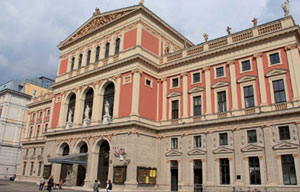Weather debate shrouded in fog
Updated: 2011-11-02 07:40
By Li Jing, Duan Yan and Cui Jia (China Daily)
|
|||||||||
Olympic gains
Beijing says it has recorded increasing numbers of "blue-sky days" - those with good air quality - every year in the past decade, but some residents are worried that the capital's air quality has deteriorated since the 2008 Olympic Games.
Yang, the accounting consultant, said she was impressed with the blue skies then. "But obviously not much of those improvements in the air quality were maintained. I'm wondering whether the neighboring factories have stopped their environmental protection measures," she said.
Beijing adopted rigorous pollution controls leading to the Olympics. More than six months before the Games, the capital's biggest polluter - a large-scale iron and steel plant - was moved out of the city. All factories in six surrounding provinces were asked to halt production.
Encouraging more use of public transportation, the city also invested heavily to upgrade its subway systems and bus services. It also took half of its vehicles off the roads for three months.
The result was satisfying. Beijing enjoyed beautiful days during the Games, and the model was copied by other cities hosting big international events, such as the Shanghai Expo and Guangzhou Asian Games. The measures also were celebrated by China's environmental watchdog as an effective cure for regional air pollution.
Not sustainable
"During such events, the political momentum is usually strong, so that it is possible to persuade your neighboring provinces to stop production temporarily," said a researcher on air pollution policy who was reluctant to be named.
"But once the big events are over, there is no reason that these surrounding provinces will still make sacrifices for big cities, and the stringent policies could not continue," the researcher said.
That is the case with Beijing. The small-scale factories that were closed for the Olympics have resumed production, burning coal or diesel and puffing out smoke. China Daily reporters also found that some of the neighboring farming areas are burning straw after the harvest.
And the city now has 5 million cars, 1.5 million more than it has in 2008, despite a car-plate lottery adopted this year to curb the rapid increase in private car purchases.
Stuck in such a situation, Du's bureau seems to have limited policy tools to clean up the sky.
"There are no other ways (to deal with such air pollution) except to continue our emission reduction efforts," he said. "Besides, it is also necessary to alert people about the health impact."
But he insisted that Beijing's air quality has improved year by year. Official statistics from his bureau said the capital had 286 blue-sky days in 2010.











